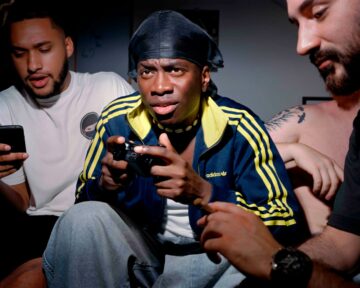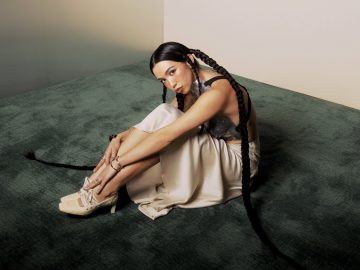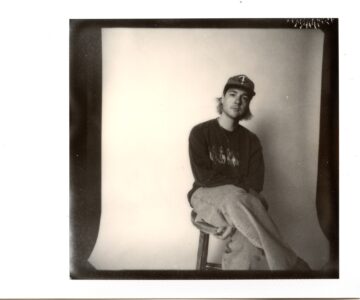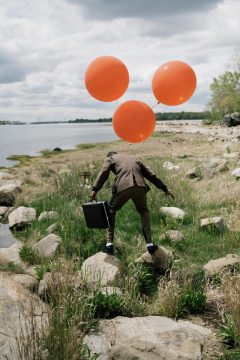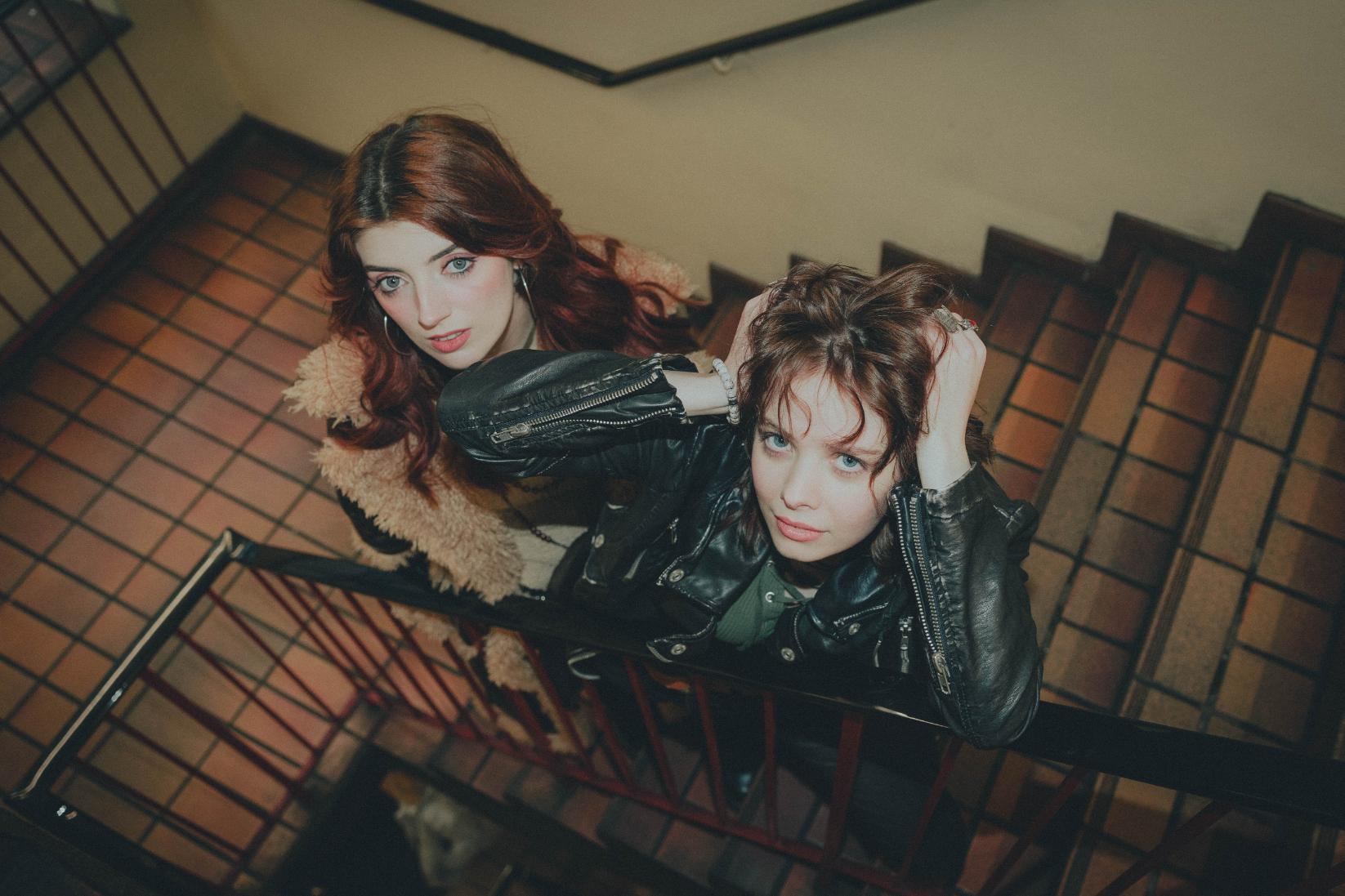
Orláith Forsythe and Mollie McGinn, the heart and soul behind Dea Matrona, have quickly risen from busking on the cobblestones of Belfast to capturing the attention of global audiences. With a name derived from Celtic mythology, translating to “divine mother goddess,” Dea Matrona not only honour their rich cultural heritage but also sets a high bar for their musical aspirations.
Their journey from impromptu street performances to securing viral fame and prestigious festival slots encapsulates a story of passion, perseverance, and the power of serendipitous encounters. As they gear up for the release of their eagerly anticipated album For Your Sins, Orláith Forsythe sits down with whynow to delve into the origins, inspirations, and aspirations of Dea Matrona.
Interview
whynow: You’ve come on a long journey so far, despite being a fresh outfit. How did you both meet: what’s the Dea Matrona origin story?
Orláith Forsythe: It was a happy accident! We were in school together and taught ourselves electric guitar, learning at the same time as each other as teenagers. It was so exciting for us to meet up and learn our favourite solos and songs. From that, we started going busking on the weekends in Belfast, just as a way to make a bit of pocket money and to give our parents a break!
After that we started getting offered different gigs and a few years down the line a video of us went viral playing on the streets of Belfast, and we began working with an agent, Steve Strange, who got us Reading and Leeds slots!
whynow: That video of you covering ‘Whole Lotta Love’ by Led Zeppelin whilst busking has racked up a huge number of views. Do you think you’d have carried on busking as a hobby even if you hadn’t been picked up by an agent?
Orláith Forsythe: Oh, 100 per cent. We still love busking, and we’ll definitely do it again sometime. But yes, if we’d never got a gig, we’d probably still be doing it. The ‘Whole Lotta Love’ video was actually in the middle of Covid, in 2020 (I think). We did that because we hadn’t busked in a while, what with lockdown and everything. There were no gigs or live music anywhere so we took it back to where we started – and had a whole lot of fun with it!
READ MORE: The Led Zeppelin song Robert Plant admitted was a ‘windup’ for Tolkien fans
whynow: What’s your musical background and heritage?
Orláith Forsythe: I grew up playing Irish traditional music in high school. My dad’s big into it, too. I’ve found my music tastes sitting in my bedroom, on YouTube, and I find all these artists I’d never heard of elsewhere. That was the exact same experience Molly had in our teenage years, too. It was like a game where one of us would come into school and boast we’d found a song that the other didn’t know yet. It’d turn into a competition of sorts so we really bounced off each other in our musical discovery as teenagers.
whynow: For those who don’t know already, what does Dea Matrona mean?
Orláith Forsythe: Dea Matrona comes from Celtic mythology and means ‘divine mother goddess’, but we actually didn’t pick it for that reason. We just loved how it sounded (it’s also a lot to live up to!).
whynow: In what other ways has Celtic history and Irish culture inspired you musically?
Orláith Forsythe: The great thing about Irish culture is you grow up with this subconscious, melodic aura around you. I don’t remember there being a time where I haven’t been exposed to music when growing up here. It’s almost like every kid knows how to play an instrument.
In terms of influence there are just so many Irish names that come up: Sinead O’Connor, U2, The Cranberries, Thin Lizzy, Rory Gallagher, we’re so lucky to have so many big influences here that we don’t have to travel too far to listen to other music.
Everything about Irish culture makes it hard not to be influenced by the Irish language as well. At the moment, it’s having a big, big revival in the arts, which is really great to see. We’d love to incorporate that into our sound at some point.
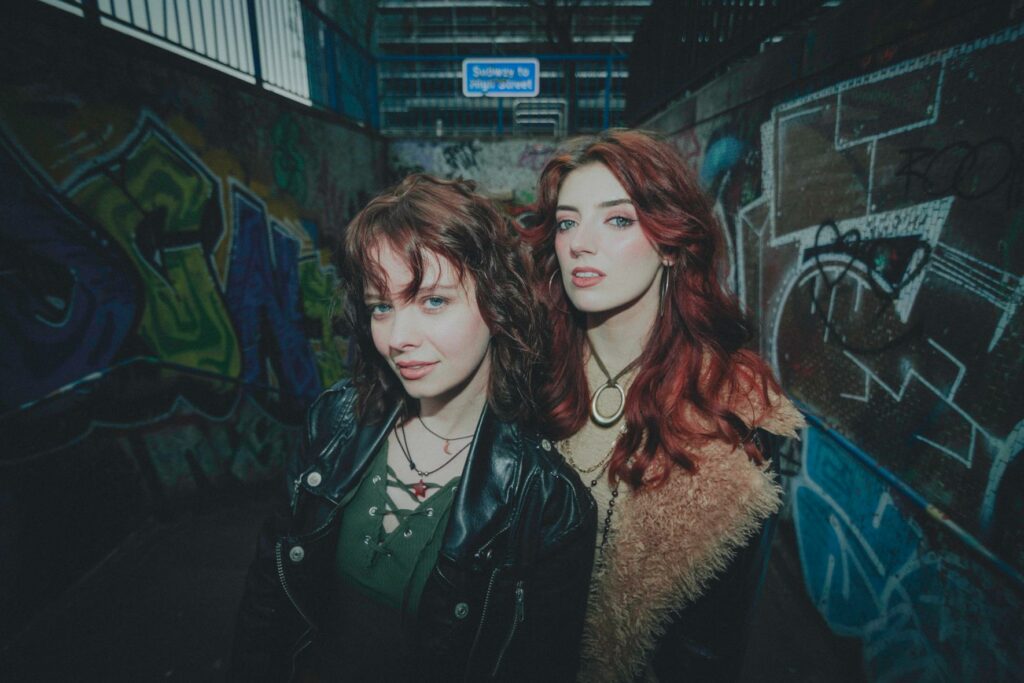
whynow: You have two primary songwriters, yourself and Molly, but you also have a band. Do you think the Dea Matrona image will always be the pair of you exclusively?
Orláith Forsythe: It’s always going to be me and Molly, but that’s not to say we’re not open to having more members down the line. It all sounds really cliche, but it’s all about the music: you have to do things to serve your band.
whynow: Who are your creative influences in and outside of music?
Orláith Forsythe: In terms of our broader musical influences, when we started playing, we loved bands like Fleetwood Mac, The Beatles, and Led Zeppelin, as well as lots of contemporary acts: Royal Blood, Arctic Monkeys, Haim, and Greta Van Fleet.
I only realised later down the line how much Celtic influence there is in Led Zeppelin’s music. At first, I was drawn in by their guitar playing, but then I noticed the Celtic themes. Even the cover of Houses of the Holy has the Giant’s Causeway on it.
Then, when it comes to books, I love Taylor Jenkins Reid’s novels [Daisy Jones and The Six; Carrie Soto Is Back].
Keep up to date with the best in UK music by following us on Instagram: @whynowworld and on Twitter/X: @whynowworld

